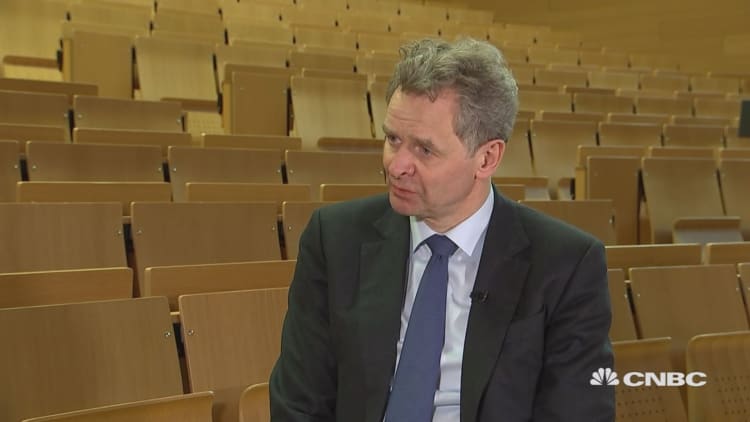Euro zone inflation unexpectedly slipped in April as prices of services increased at a slower pace, data showed on Thursday, raising questions about the European Central Bank's plan for a gradual withdrawal of monetary stimulus.
The European Union's statistics office Eurostat estimated that inflation in the 19 countries sharing the euro was 1.2 percent year-on-year in April.
Economists polled by Reuters had expected the rate to be unchanged from March's 1.3 percent.
Even if inflation remains short of the ECB's target of near 2 percent, its policymakers have been debating whether to end the central bank's 2.55 trillion euro ($3.06 trillion) asset purchase scheme.
A decision on future moves is likely to be communicated in June or July, with September an outside possibility.
Prices of food, alcohol and tobacco, of energy and of non-energy industrial goods all rose at a faster year-on-year pace than in March.

However, prices of services were only 1.0 percent higher, compared with a 1.5 percent increase in March Core inflation measures of inflation, which the ECB also looks to as a guide, were also below expectations.
The measure that strips out the volatile prices of energy and unprocessed food, was 1.1 percent year-on-year in April from 1.3 percent in March and against an expected 1.2 percent rate.
The core inflation measure that many market economists look at, which also excludes the prices of alcohol and tobacco, also slipped to 0.7 percent from 1.0 percent in March. Economists had forecast it would be 0.9 percent.
Eurostat's flash estimate for the month does not include a monthly calculation.
Separately on Wednesday, Eurostat reported that prices at factory gates in the euro zone rose 0.1 percent in March from February and by 2.1 percent year-on-year. Compared with a year earlier, energy prices were up the most.

